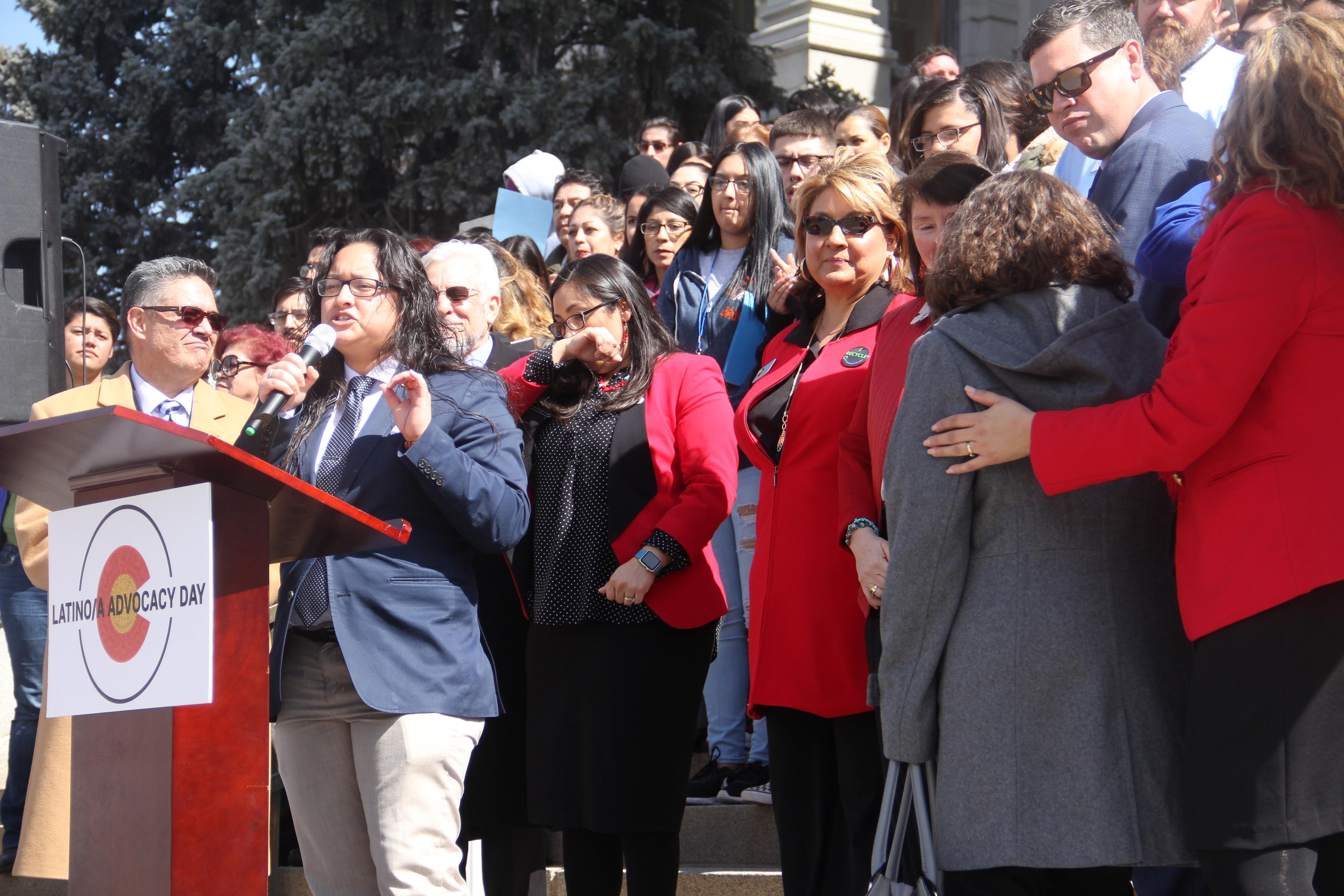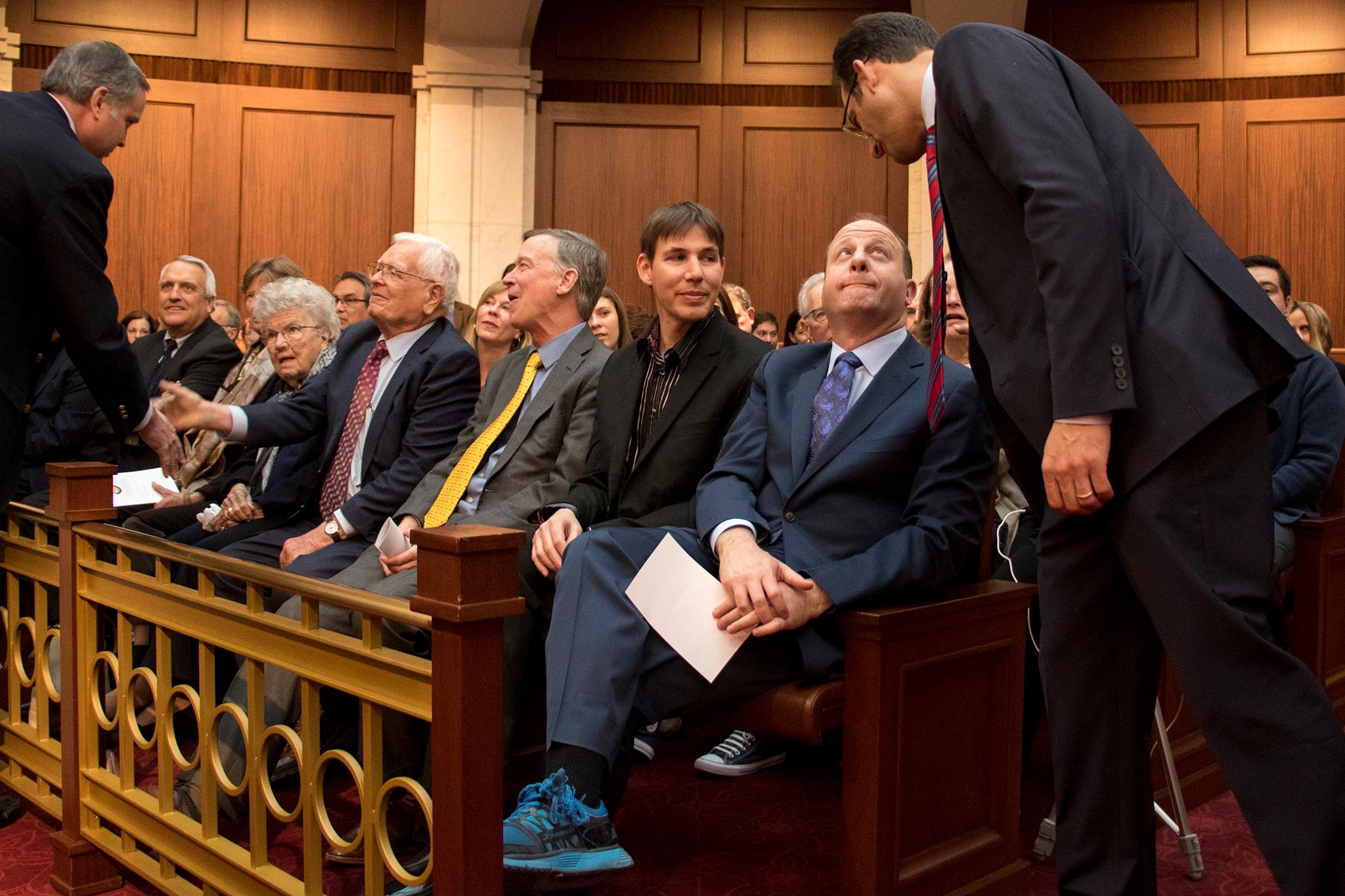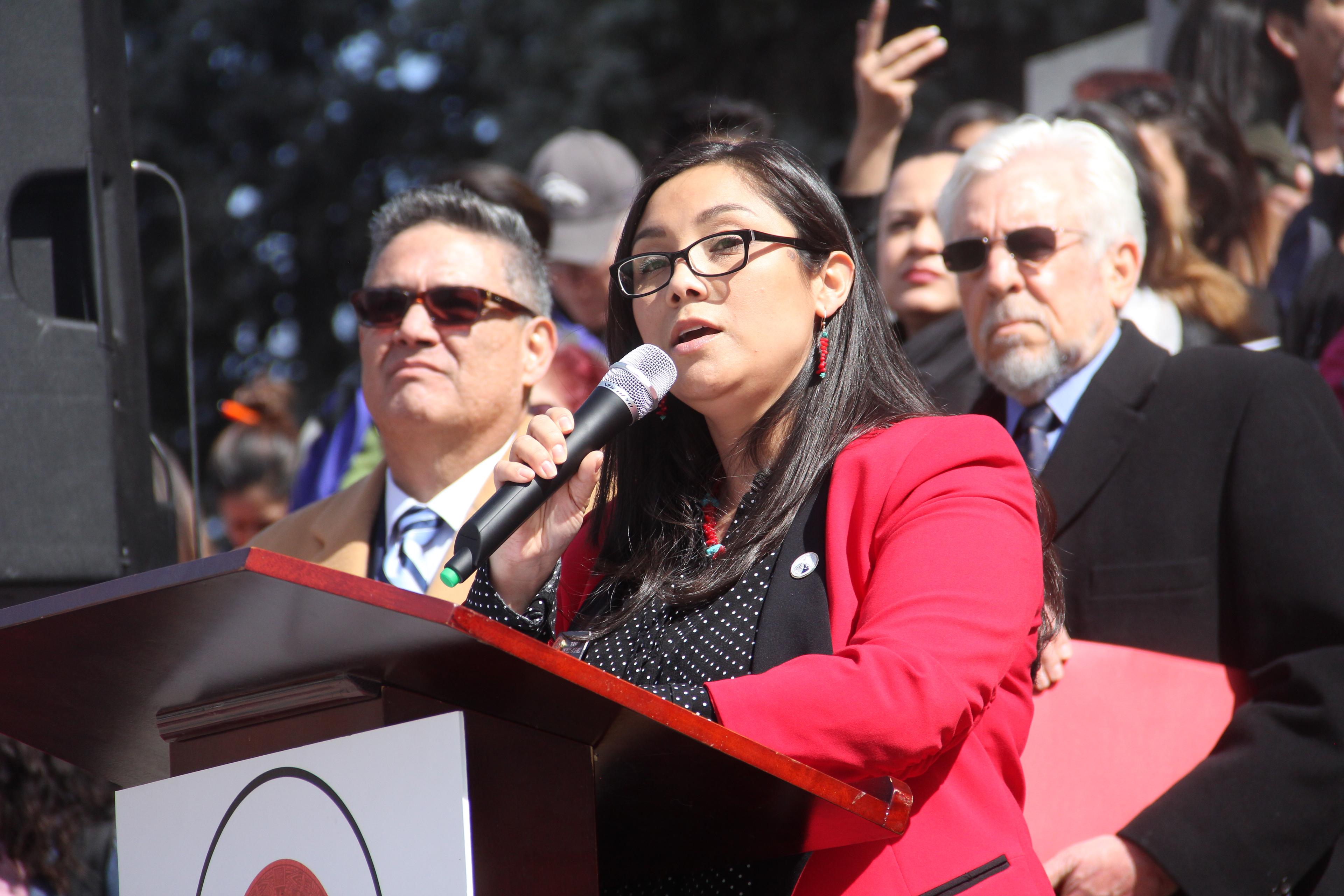Latinos from across the Front Range and around the state on Monday came together in Denver for the 13th annual Latino/a Advocacy Day.
The full-day event, which kicked off in the morning with remarks from Gov. Jared Polis, gives Latino community members including high school students a chance to learn more about what their legislature is up to and to meet one-on-one with lawmakers. The policies included largely progressive platforms, like advocating for more immigrant rights.
Organizers said about 300 people registered for Monday's event, with a few cancellations from the Western Slope due to weather. There was even a group from Wyoming there to learn how to replicate a similar event in their state.
"You're looking at future representatives, future senators, future city council members right here in this room," State Sen. Julie Gonzales of Denver said Monday.
Attendees got a chance to meet with 27 lawmakers. The meetings were held after a rally outside the Capitol, where several lawmakers, including some of the 14-member Colorado Democratic Latino Caucus, spoke to a large crowd assembled on the Capitol's west steps. The event also included breakout sessions at the McNicholas Civic Center Building on Colfax.
"Your voice is important," said state Rep. Serena Gonzales-Gutierrez of Denver, who's Latino Caucus co-chair. "And we are here as your Latino caucus to work together for the betterment of our communities, making them safer, stronger and more sustainable."
Gonzales was once a community participant in the event. She later participated as an organizer, helping train others to lobby and get involved in the political process.
"I've said for years, if you're not at the table when policies are being contemplated, more than likely it's because you're on the menu," Gonzales said. "So to see hundreds of Latinos and Latino community members and their allies here at the Capitol to advocate is super exciting."
Gonzales said she feels the governor has been proactive about reaching out to the Latino community in ways previous administrations were not.

Yet during a pizza lunch for first-year legislators hosted by Polis, Gonzales and other lawmakers made something clear.
"We told him, 'Listen, we look forward to serving alongside you for the next eight years,'" Gonzales said. "'We want to have a good relationship, which means we're going to let you know when we agree and where we support you. We're also going to let you know when we disagree and where we want you to be bolder and stronger.'"
Among bills currently under consideration with the potential to affect Latinos is one expanding a program for immigrant drivers licenses.
State Rep. Rochelle Galindo of Greeley was a primary co-sponsor of the legislation, which would expand the number of sites where undocumented immigrants can obtain drivers licenses and ID cards to a minimum of 10 offices in the state. It's an effort Polis supports.

Right now, there are three DMV offices -- in Colorado Springs, Grand Junction and Lakewood -- providing first-time applicant appointments, with one office (in Aurora) providing renewal appointments.
The program has faced lengthy backlogs and there was even a state investigation to determine whether people were selling their appointments. The bill is headed to the Senate floor after being passed through committee, including the Senate Finance Committee, where support from the state's dairy and livestock industry backed the legislation during a hearing last month.
Galindo said the bill doesn't specify where the new locations will be put.
"Hopefully we can get them in better locations, where there's a huge amount of immigrant and obviously Latino populations, hopefully in Weld County," Galindo said.
Galindo was involved in efforts to pass a law creating the program in 2013. The state began issuing the licenses a year later. She ran her campaign on the promise of introducing a bill expanding the program.
"It's a very vital program," Galindo said. "It makes our roads safer and it helps with dignity among our undocumented residents."
Polis discussed some of the policies his office is working on that could benefit the Latino community, including a plan to create an immigration office at the Capitol.
"We're also working with the legislature on a number of bills, including ways to better improve training for law enforcement and employees to understand how to better work with immigrant communities and build trust," Polis said Monday.
His office is currently working on expanding the eligibility residency requirements for DACA recipients who want to apply for in-state tuition. He cited his push to erase healthcare coverage disparities, noting the Latino community is disproportionally affected by lack of access to healthcare.
"There is still a significantly higher rate of Latinx community members that are not insured compared to the general population," Polis said.

He said in addition to policy goals, representation matters, which is why he appointed Marissa Molina to serve on the to Board of Trustees at Metropolitan State University of Denver. Molina will be the first-ever DACA recipient to serve on a Colorado state board, doing so for a university that recently earned federal designation as a Hispanic-Serving Institution.
"We want to continue to ensure that all of our residents have a seat at the table," Polis said.
The governor said he was excited about the possibility of creating an immigrant integration office in the governor's office. It would include adding a new position to handle immigrant and refugee concerns, with funding for the new role paid for with philanthropic partners.
A spokesperson for Polis, Laurie Cipriano, said in an emailed statement that many community members had contacted the governor's office about establishing an immigrants affairs office.
"In an effort to better understand how other states established similar offices, our Executive Director of the Department of Labor and Employment Joe Barela, is traveling to Washington, D.C. this week to discuss the matter with leaders from other states," Cipriano said in the statement.
Gonzales said creating the office will require legislation. She said lawmakers are in the middle of conversations about what that would look like, with hopes of introducing legislation as soon as this year.
Galindo also supports the legislation.
"It's up to us as a state to ensure our residents are protected and their rights aren't being infringed upon," Galindo said. "I appreciate the fact that Governor Polis sees this as an issue, sees this as something that he needs to prioritize ... it's pretty exciting to even be having the conversation and I really do hope that it comes to fruition."













